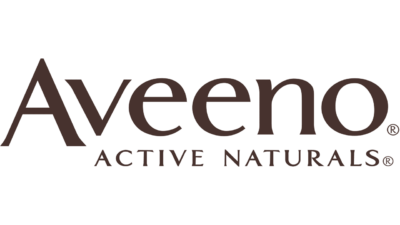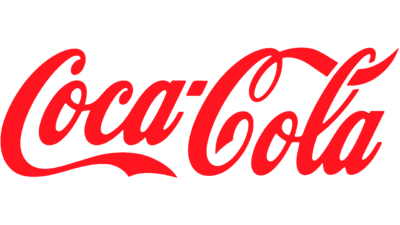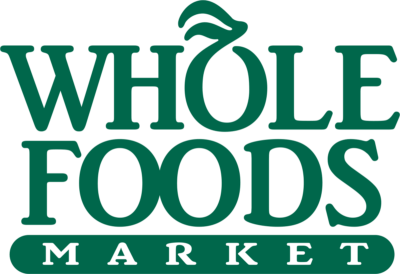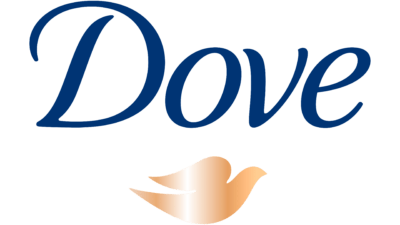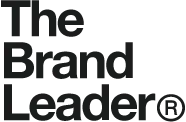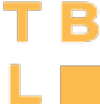this that this that
Brand Archetypes
The Innocent
They seek a simpler, safer life — because life doesn’t need to be hard. Be in the hands of an Innocent brand. They’re pure and virtuous and seek the promise of paradise, or simpler times.
What is the Innocent Brand Archetype?
The Innocent is the archetype that doesn't complicate—it clarifies. This is the brand that doesn't add—it subtracts. It doesn't manipulate—it trusts.
Inspired by Purity, Defined by Simplicity
Innocent brands are driven by the belief that less is more, that natural is better, and that people are exhausted by complexity, additives, and corporate spin. They see the world as overcomplicated and themselves as the return to basics, to purity, to what's real. And they're not being simple for simplicity's sake—they're doing it because authenticity matters. Because transparency matters. Because honesty demands it. The artificial needs eliminating.
What are some Innocent brand examples?
- Aveeno
- Dove
- Whole Foods
- Coca-Cola
- Lärabar
- Smartwater
The Psychology of The Innocent Brand Archetype
Map this to the Enneagram and you get Type 9: The Peacemaker, combined with Type 1's desire for goodness and purity. The deep belief that things should be simple, honest, and uncomplicated, and that purity is not naivety—it's wisdom.
Innocents are fueled by a desire to return to basics, to strip away what's unnecessary, and to trust in simplicity. They believe that corporations have over-engineered everything, that ingredient lists shouldn't require chemistry degrees, and that the best solutions are often the oldest, simplest ones. They ask: "Why did we make this so complicated?" So they simplify. They purify. They never stop removing what doesn't belong.
This is why Dove doesn't just sell soap—they sell "real beauty" and products with "¼ moisturizing cream" (simple, understandable, pure). Their campaigns feature real women, not models, because the brand believes beauty should be uncomplicated by impossible standards. Similarly, Smartwater doesn't just bottle water—they vapor-distill it to achieve purity, adding back only essential minerals. The name itself signals simplicity: smart, pure, water. That's it.
The Innocent Brand's Promise
Every Innocent brand makes the same core promise: "With us, it's simple and pure," which is selling clarity and trust. That is, the honesty, transparency, and simplicity you need to feel safe and good about your choices.
Take Lärabar. They didn't become a snack bar phenomenon by talking about complex nutrition science. They became it by listing ingredients you can count on one hand—dates, nuts, maybe some fruit. No added sugar, no preservatives, no ingredients you can't pronounce. The wrapper literally lists every ingredient in large type on the front. They understand you're not buying performance nutrition; you're buying trustworthy simplicity.
Or consider Whole Foods, a grocery chain that positioned itself as "America's Healthiest Grocery Store" by promising standards—no artificial colors, flavors, or preservatives. They created trust through transparency: here's what we won't sell, here's why, here's what you can trust when you shop here. They made grocery shopping simple: if it's on our shelves, it met our standards. You can relax.
The Innocent Brand's Core Values
Radical Simplicity: Innocents strip away complexity. Smartwater is literally water, purified. That's the whole story. Lärabar ingredients are visible through the packaging—dates and cashews you can actually see. Dove's "¼ moisturizing cream" is deliberately simple messaging in an industry drowning in scientific-sounding claims. Simplicity isn't dumbing down; it's honoring clarity.
Natural and Pure: Innocents favor what's real over what's engineered. Aveeno built their entire brand on "active naturals"—oat-based skincare that's been used for generations because it works, not because a lab invented it last year. Whole Foods' quality standards favor organic, natural, and minimally processed. The question isn't "what can we add?" but "what can we remove?"
Transparency as Trust: Innocents hide nothing because they have nothing to hide. Lärabar puts ingredients on the front of the wrapper in huge type. Dove publicly commits to "real beauty" and features their real customers. Smartwater's bottle is clear so you see the product. Aveeno lists their active naturals prominently. Trust is built through visibility, not marketing claims.
Optimistic Goodness: Innocents believe in the fundamental goodness of people and products. Volkswagen's classic "Think Small" campaign celebrated simplicity and honesty when other car companies were pushing bigger, flashier, more complex vehicles (they have since moved on to be an Everyman brand). The Beetle was uncomplicated transportation for good people living good lives. Their brand (before the scandals) projected optimistic simplicity—we're the good guys making good cars.
Safety and Comfort: Innocents create environments where you can relax your guard. Whole Foods (at its peak) was the store where you didn't need to read every label obsessively because their standards did that work for you. Aveeno is the skincare sensitive skin can trust. Dove is the soap gentle enough for your face. Innocents remove anxiety through reliable goodness.
What are the Innocent Brand's Sub-Archetypes?
While all Innocents share core values, they express them differently. Understanding these nuances helps brands fine-tune their positioning and messaging.
The Purist
Minimalist and uncompromising, the Purist removes everything unnecessary. Smartwater embodies the Purist—vapor-distilled to remove everything, then electrolytes added back for taste. It's water perfected through subtraction. Lärabar also lives here with ingredient lists that are aggressively minimal. The Purist's potential pitfall can be becoming so pure they're impractical, or purity becoming pretentious rather than accessible.
The Naturalist
Earth-connected and organic, the Naturalist favors what comes from nature over what comes from labs. Aveeno operates as the Naturalist with their focus on oat-based, naturally-derived ingredients that have been used for generations. Whole Foods built their empire on the Naturalist positioning—organic, natural, unprocessed. The risk? "Natural" becoming a marketing term devoid of meaning, or natural being confused with automatically safe (poison ivy is natural too).
The Optimist
Positive and hopeful, the Optimist believes in goodness and possibility. Dove embodies the Optimist with their "Real Beauty" campaign—believing that beauty standards can change, that self-esteem can improve, that we can all be kinder to ourselves. Volkswagen's classic advertising was pure Optimist—small cars for a simpler, happier life. The trap can be optimism that ignores real problems, or positivity that feels forced or naive.
The Transparent
Honest and open, the Transparent believes visibility builds trust. Lärabar operates as Transparent—you can literally see the ingredients through the wrapper, and they list everything prominently. Whole Foods' quality standards are publicly posted. Smartwater's clear bottle shows exactly what you're getting. The danger lies in transparency revealing things customers didn't want to know, or openness becoming performance rather than genuine honesty.
The Traditionalist
Heritage-honoring and time-tested, the Traditionalist trusts what's worked for generations. Aveeno leans on this with colloidal oatmeal—used for skin care since ancient times. Dove's basic soap bar has barely changed in decades because it works. The pitfall? Tradition becoming stagnation, or "the old way" being confused with "the right way" when better options exist.
Building an Authentic Innocent Brand
Your Simplicity Must Be Real: Don't fake minimalism while hiding complexity. Lärabar actually has 3-6 ingredients—that's not marketing spin, it's the actual product. Smartwater is actually vapor-distilled water. If you claim simplicity but your supply chain or production is opaque and complex, you're lying. Innocents can't afford to be caught in complexity.
Strip to Essentials: Identify what truly matters and eliminate everything else. Dove discovered that soap with moisturizer was the essential insight—everything else in their brand serves that core truth. Aveeno focuses on oats because that's what works for sensitive skin. Don't add features or claims that complicate your story. Subtract ruthlessly.
Make Transparency Non-Negotiable: If you can't explain where it comes from or what's in it, don't use it. Whole Foods' quality standards aren't perfect, but they're posted and enforced. Lärabar shows you the actual dates and nuts through the wrapper. Transparency isn't a marketing strategy; it's operational philosophy. If you need to hide how it's made, you're not an Innocent brand.
Trust Your Customers: Innocents assume good intent and intelligence. Dove trusts women to recognize authentic beauty without Photoshop. Smartwater trusts consumers to value pure water without needing vitamin-enhanced-antioxidant-super-hydration nonsense. Lärabar trusts people to appreciate simple ingredients without marketing hype. Treating customers like they're smart is Innocent strategy 101.
Never Betray the Trust: Volkswagen's diesel emissions scandal destroyed their Innocent positioning because Innocents can't survive betrayal (which is when they made a shift in their tone, voice, and positioning to an Everyman). Because if you position on purity and honesty, getting caught lying is brand death. Whole Foods selling conventional produce as organic would be catastrophic. Innocents must be what they claim, always, because trust is the entire product.
Keep It Accessible: Purity shouldn't be elitist. Dove is affordable. Smartwater is accessible. Lärabar is available at gas stations. Volkswagen (classically) was the "people's car." Aveeno is at drugstores. If only wealthy people can afford your "simple, pure" brand, you're not Innocent—you're Ruler using Innocent messaging.
The Innocent archetype endures because it speaks to something fundamental: the human desire for simplicity, purity, and trustworthiness in a world that feels increasingly complex, artificial, and manipulative. In a culture drowning in options, ingredients, and corporate spin, Innocent brands offer the radical promise of clarity and honesty.
They remind us that simple is often better. That transparency builds trust faster than marketing claims. That what you remove matters as much as what you add. And that in a complicated world, the brands that help us breathe easier are the ones we return to again and again.
That's not just good branding. That's a reason to exist.
The Innocent Connection Strategy
Brands like this appeal to families, especially those with children, as they offer safety. They’re closely associated with the Enneagram 9 as well, as they are full of faith, optimism, and want those around them to be happy.
Products from these brands are often natural or pure: Johnson and Johnson’s Baby Tear Free shampoo, Q-Tips, Dove soap, or Aveeno bath products.
The Innocent Brand Voice
Optimistic
Honest
Humble
The Innocent Brand Voice

Innocent Brand Examples
